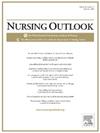Building competency in artificial intelligence and bias mitigation for nurse scientists and aligned health researchers
IF 3.7
2区 医学
Q1 NURSING
引用次数: 0
Abstract
Healthcare systems are increasingly integrating artificial intelligence and machine learning (AI/ML) tools into patient care, potentially influencing clinical decisions for millions. However, concerns are growing about these tools reinforcing systemic inequities. To address bias in AI/ML tools and promote equitable outcomes, guidelines for mitigating this bias and comprehensive workforce training programs are necessary. In response, we developed the multifaceted Human-Centered Use of Multidisciplinary AI for Next-Gen Education and Research (HUMAINE), informed by a comprehensive scoping review, training workshops, and a research symposium. The curriculum, which focuses on structural inequities in algorithms that contribute to health disparities, is designed to equip scientists with AI/ML competencies that allow them to effectively address these structural inequities and promote health equity. The curriculum incorporates the perspectives of clinicians, biostatisticians, engineers, and policymakers to harness AI’s transformative potential, with the goal of building an inclusive ecosystem where cutting-edge technology and ethical AI governance converge to create a more equitable healthcare future for all.
为护士科学家和相关卫生研究人员建立人工智能和偏见缓解能力
医疗保健系统越来越多地将人工智能和机器学习(AI/ML)工具集成到患者护理中,这可能会影响数百万人的临床决策。然而,人们越来越担心这些工具会加剧系统性不平等。为了解决人工智能/机器学习工具中的偏见并促进公平的结果,有必要制定减轻这种偏见的指导方针和全面的劳动力培训计划。作为回应,我们通过全面的范围审查、培训研讨会和研究研讨会,开发了以人为本的多学科人工智能在下一代教育和研究中的多面应用(HUMAINE)。该课程侧重于导致健康差异的算法中的结构性不平等,旨在使科学家具备人工智能/机器学习能力,使他们能够有效地解决这些结构性不平等问题并促进健康公平。该课程结合了临床医生、生物统计学家、工程师和政策制定者的观点,以利用人工智能的变革潜力,目标是建立一个包容性的生态系统,将尖端技术和道德人工智能治理融合在一起,为所有人创造一个更公平的医疗保健未来。
本文章由计算机程序翻译,如有差异,请以英文原文为准。
求助全文
约1分钟内获得全文
求助全文
来源期刊

Nursing Outlook
医学-护理
CiteScore
6.20
自引率
7.00%
发文量
109
审稿时长
25 days
期刊介绍:
Nursing Outlook, a bimonthly journal, provides innovative ideas for nursing leaders through peer-reviewed articles and timely reports. Each issue examines current issues and trends in nursing practice, education, and research, offering progressive solutions to the challenges facing the profession. Nursing Outlook is the official journal of the American Academy of Nursing and the Council for the Advancement of Nursing Science and supports their mission to serve the public and the nursing profession by advancing health policy and practice through the generation, synthesis, and dissemination of nursing knowledge. The journal is included in MEDLINE, CINAHL and the Journal Citation Reports published by Clarivate Analytics.
 求助内容:
求助内容: 应助结果提醒方式:
应助结果提醒方式:


